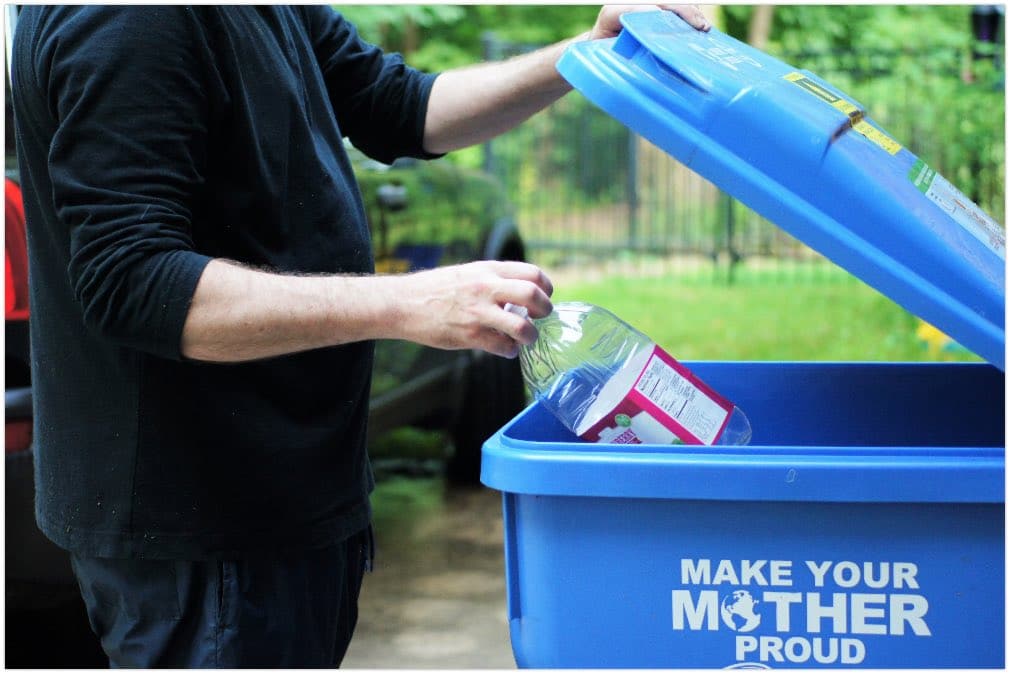Waste generation in the country amounts to 67 million tonnes of rubbish per annum. We recycle about 37 million tonnes of rubbish while we recover energy from the other 2 million tonnes. That means that we’re only recovering about 58% of the total waste we generate while the remaining 42% goes directly to sanitary landfills.
Not everything that goes into landfills is supposed to be there. Some rubbish that is recyclable end up there because we lack the market for these products and because our recycling facilities have almost reached their full capacity. Another reason why reusable materials end up in landfills is due to contamination from improper waste disposal.
Related: Latest Update on the New Sydney Waste Plant
What is Proper Waste Disposal?
Proper waste disposal is the practice of throwing your rubbish in the most environment-friendly manner possible. It entails following the 3Rs – reduce, reuse, and recycle – in order to deal with rubbish responsibly. By practising proper waste disposal, you are helping minimise the growing problem with waste generation and make the most out of every rubbish. That way, you can save our natural resources and help make this world a sustainable place to live in
Proper Waste Segregation
Proper waste disposal begins with sorting your rubbish into different categories to easily know what to do with them. You can segregate rubbish according to their material category by having separate bins for paper, glass, metal, and plastics, or you could also classify them whether they are recyclable, biodegradable, hazardous, or electronic.
Reduce Waste
Reducing rubbish generation means minimising the purchase of products and food items you don’t need. Be a smart consumer and buy only the things you need and can consume within a time period. That way, you don’t add much to the volume of rubbish that needs treatment, recycling, or disposal.
Reuse and Recycle
Reusing means using something again for as long as it still works while recycling means transforming your rubbish into another product. Doing these processes help save our natural resources since no water, wood, minerals, and fossil fuels will be consumed to manufacture new products.
Compost
Composting is the most sustainable method to deal with organic waste and food waste. Instead of sending food waste into landfills where they produce toxic greenhouse gases such as methane, composting transforms organic waste into natural fertiliser for soil and plants.
Waste to Energy
WtE is a form of resource recovery from waste through burning. In this method, waste-to-energy plants transform municipal solid waste into usable forms of energy such as heat, electricity, and fuel.
How Can Proper Waste Disposal Save Resources?
Did you know every ton of recycled paper saves 17 trees, 2 barrels of oil, and 4,100 kilowatts of energy? Or that each ton of recycled steel conserves 1.13 tons of iron ore, 0.64 ton of coal, and 0.05 ton of limestone? Proper waste disposal can conserve a lot of these resources. Check out the following resources you could save if you dispose of waste properly.
Raw Materials
Reducing, reusing, and recycling save our natural resources since manufacturers won’t have to harvest them to create new materials. Thus, you help conserve resources such as petroleum, iron ore, aluminium, and trees to make products like grocery bags, beer and soda cans, and paper. Consequently, you also help prevent resource depletion and environmental destruction because of mining and deforestation.
Energy
Production of new materials requires a lot of energy. That’s because you have to start from the bottom and perform plenty of work such as transporting and refining. On the contrary, using recycled materials to create new products is less energy-extensive since these items have already been refined and processed. Reprocessing them to make new products can save up to 30% energy. Production from recycled paper only requires 60% of the energy needed to make virgin paper.
Financial resources
Aside from being labour-intensive, the production of new materials is also expensive. The procurement of fresh raw materials costs a huge sum of money which you could otherwise save if you use recycled products. Aside from that, if all of us practice proper waste disposal, the government won’t need to allocate a large amount of money on clean up activities because there wouldn’t be anything to clean up. Thus, these financial resources could go to more productive things.
Conclusion
Proper waste disposal is an essential part of our lifestyle. Everyone must make it a habit to reduce, reuse, and recycle rubbish so that we can conserve tons of our resources. Imagine all the trees, fuel, and money we could save if we perform our duty to the environment.
One way you could help save resources is by trusting Paul to deal with your rubbish removal needs at home. Paul’s Rubbish Removal is one of the most trusted rubbish removal companies in Sydney. Paul genuinely cares for the environment, so you can rest assured that we will handle the collection, sorting, transportation, and disposal of your rubbish in the most environment-friendly way possible. We have partner recycling facilities who recycle and dispose of every bit of your rubbish responsibly.
Contact Paul now at 0407 125 125 or send us a message.







